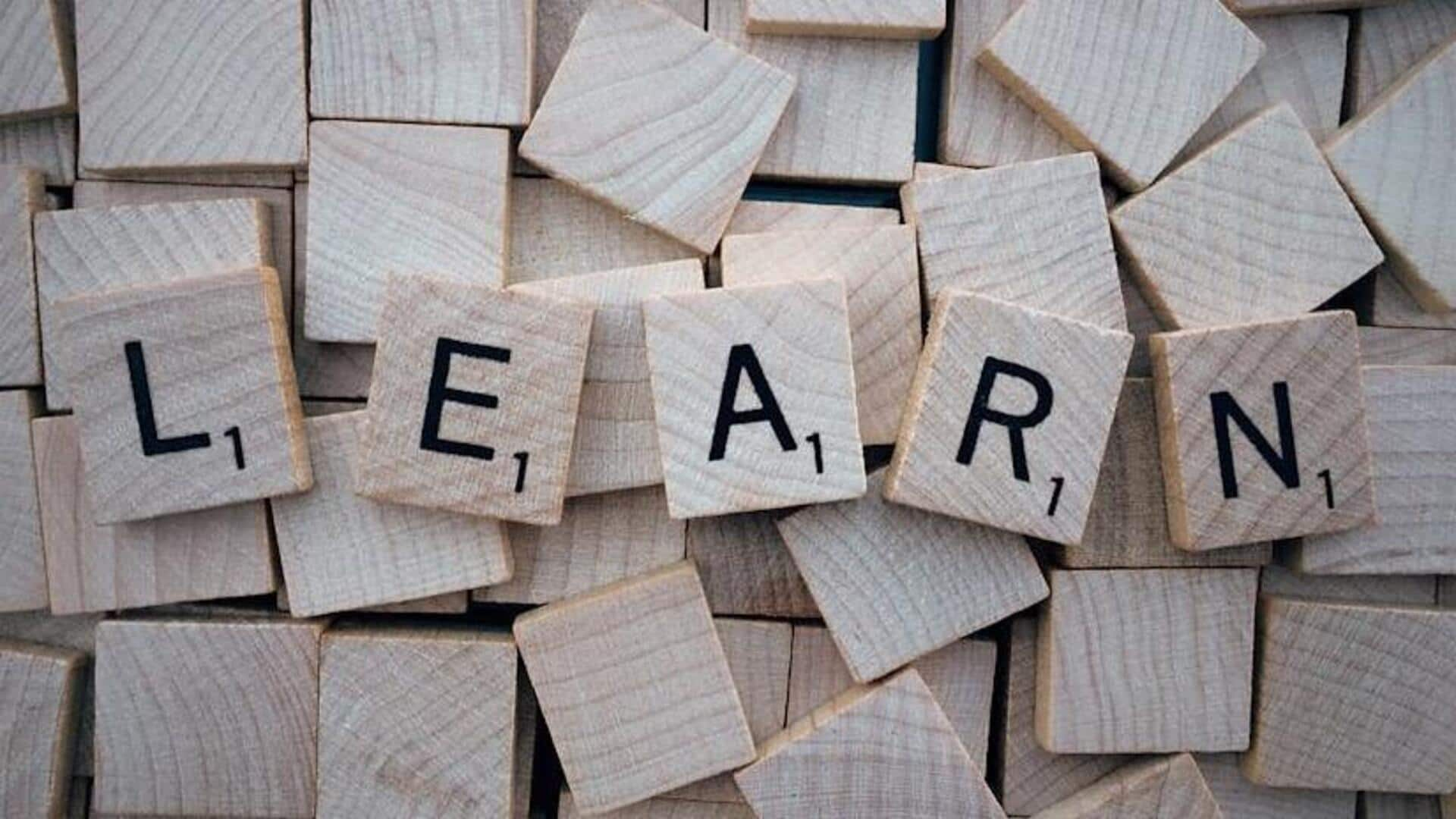
Why learning a new word daily is a powerful habit
What's the story
Adopting a word-a-day habit can be a simple, yet effective, way to grow personally. By learning one new word every day, you can expand your vocabulary, improve your communication skills and boost cognitive abilities. Not only does this practice enrich your language, but it also fosters creativity and critical thinking. Doing this exercise can make you more confident in personal and professional interactions, making it a valuable self-improvement tool.
Drive 1
Enhance vocabulary skills
Learning a new word every day drastically improves vocabulary skills. With every addition to your lexicon, you get to articulate thoughts more precisely, and effectively. A richer vocabulary enables you to articulate ideas and emotions better, which is important in both written and verbal forms of communication. Gradually, this practice makes it easier to comprehend complex texts, and helps you master the language.
Drive 2
Boost cognitive abilities
Engaging with new words every day keeps your brain active, thus improving your cognitive skills. The mental exercise prompts your brain to develop new connections between neurons, improving memory retention and recall abilities. Studies indicate that people who constantly challenge their brain with new information are less likely to suffer cognitive decline as they age. Hence, a word-a-day habit can benefit long-term mental health.
Drive 3
Improve communication skills
A broader vocabulary directly impacts communication skills, as it allows you to express your thoughts and ideas more clearly. When you have an extensive range of words at your disposal, you can select the most appropriate ones for a particular context/audience. This precision minimizes the chances of misunderstandings in conversations and makes your interpersonal relationship better due to improved mutual understanding.
Drive 4
Foster creativity and critical thinking
Learning new words encourages creative thinking by exposing you to different concepts or perspectives associated with those words. It challenges you, not just linguistically, but also intellectually, as you explore meanings beyond surface definitions. This leads you towards innovative problem-solving approaches or novel ideas generation processes that require critical analysis before implementation into real-world scenarios where applicable solutions are needed most urgently today.